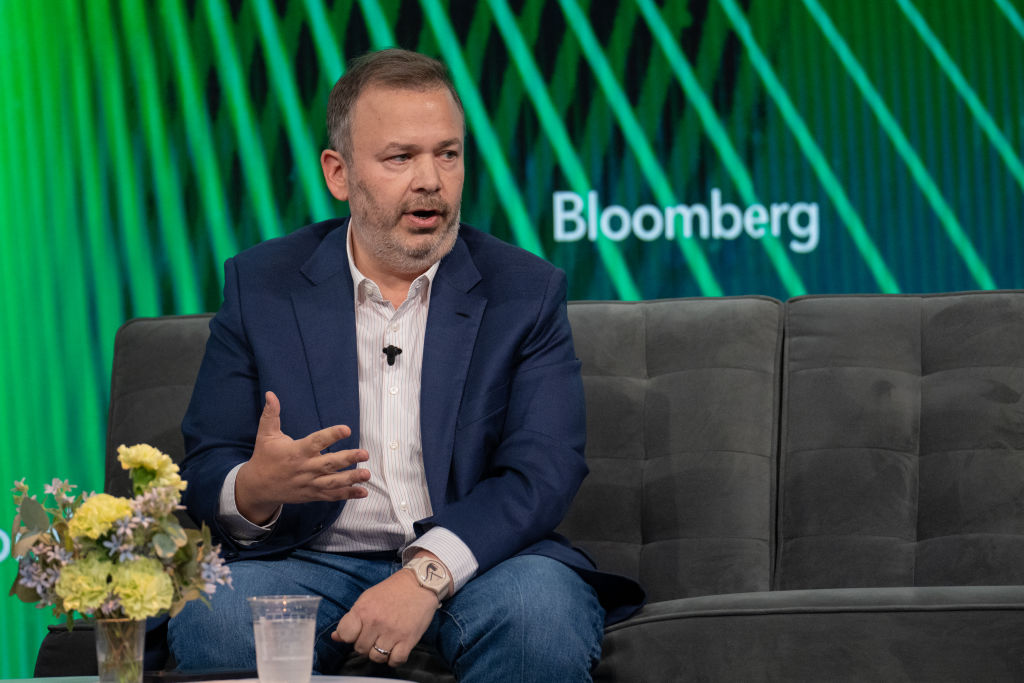Spread betting comes of age
More and more investors are turning to spread betting as a way to make money. Cris Sholto Heaton explains why, and outlines the risks involved.

Get the latest financial news, insights and expert analysis from our award-winning MoneyWeek team, to help you understand what really matters when it comes to your finances.
You are now subscribed
Your newsletter sign-up was successful
Want to add more newsletters?

Twice daily
MoneyWeek
Get the latest financial news, insights and expert analysis from our award-winning MoneyWeek team, to help you understand what really matters when it comes to your finances.

Four times a week
Look After My Bills
Sign up to our free money-saving newsletter, filled with the latest news and expert advice to help you find the best tips and deals for managing your bills. Start saving today!
Spread betting grew strongly in popularity in the years after the global financial crisis, as high volatility and low expectations of steady capital gains saw traders look for alternative ways to make money.
The number of people placing at least one spread bet a year or using contracts for difference (CFDs), a similar instrument peaked at more than 100,000 in 2012, according to research firm Investments Trends.
Given that stocks have recently begun performing more consistently the FTSE 100 was up a healthy 14% last year one might have expected that number to drop off significantly by now. But so far, there's not much sign of this.Activity has shrunk a little, but some 93,000 traders remained active in spread bets and CFDs in 2013.
MoneyWeek
Subscribe to MoneyWeek today and get your first six magazine issues absolutely FREE

Sign up to Money Morning
Don't miss the latest investment and personal finances news, market analysis, plus money-saving tips with our free twice-daily newsletter
Don't miss the latest investment and personal finances news, market analysis, plus money-saving tips with our free twice-daily newsletter
In short, spread betting appears to have established itself as part of the mainstream within the UK investment community, rather than simply being a passing fad.
That's not surprising, since spread betting is more of a complement to traditional methods of investing than a competitor. Many investors will have a mix of long-term and short-term positions in their portfolio at any one time.
Spread betting is entirely unsuitable for the former, but has four key features that may sometimes make it a better choice for the latter. The first is tax.
Profits from spread betting are currently tax-free, whereas profits from dealing directly in shares are subject to capital gains tax (CGT). For smaller traders whose gains would probably be covered by the annual CGT allowance, that's not a big deal, but it can be attractive for larger ones.
The second is costs. When you deal in shares, you pay dealing commission perhaps £10 a trade. With spread bets, you don't all the costs are absorbed into the spread'. Yes, you're certainly still paying your spread betting provider, but you're doing so in a way that can make smaller or more frequent trades more cost effective than buying directly.
The third is market access. Spread betting doesn't just let you trade shares you can speculate on a wide range of other assets, such as currencies and commodities. Importantly, you can go short meaning that you bet on them falling just as easily as you can profit from them going up.
And lastly, there's leverage, which is perhaps spread betting's greatest selling point and its greatest risk. Leverage means that you trade with borrowed money, which can increase your profits when you get things right but will also cause you to lose money when you get things wrong.
And make no mistake: you will get things wrong. Even the most successful traders don't have anything close to a 100% hit rate. Beginners will do far worse unless they are very lucky, in which case they are likely to get overconfident and suffer even more when their luck turns.
For this reason, new entrants to spread betting should tread carefully. If you have an addictive personality or see spread betting as a quick way out of money troubles, don't even consider it.
Practise extensively with a demo account first, start small, be realistic and master risk management early. And if you're still consistently losing money, accept that trading may not be for you and be prepared to give up.
On that cautionary note, good luck!
Get the latest financial news, insights and expert analysis from our award-winning MoneyWeek team, to help you understand what really matters when it comes to your finances.

Cris Sholt Heaton is the contributing editor for MoneyWeek.
He is an investment analyst and writer who has been contributing to MoneyWeek since 2006 and was managing editor of the magazine between 2016 and 2018. He is experienced in covering international investing, believing many investors still focus too much on their home markets and that it pays to take advantage of all the opportunities the world offers.
He often writes about Asian equities, international income and global asset allocation.
-
 The ‘mirror will’ flaw which could mean your savings end up with strangers – how to protect your legacy
The ‘mirror will’ flaw which could mean your savings end up with strangers – how to protect your legacyWriting a will lets you pass your wealth onto your loved ones. But couples with a so-called ‘mirror will’ could unintentionally leave their family exposed to being cut out.
-
 Saba comes for Edinburgh Worldwide’s board... again
Saba comes for Edinburgh Worldwide’s board... againSaba Capital Management has announced fresh plans to displace the board of Edinburgh Worldwide despite having been decisively beaten in a recent vote